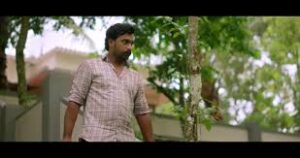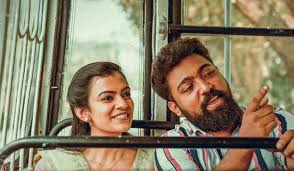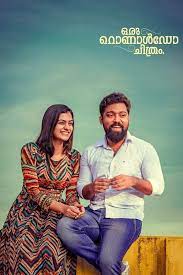Oru Ronaldo Chithram Full Movie Latest And reviews
Introduction
Malayalam cinema has always been known for its ability to tell stories that touch the heart while experimenting with new ideas. Among the latest films that have attempted to walk this delicate balance is Oru Ronaldo Chithram. This is not just another love story or another drama about ambition. It is a layered narrative that brings together the life of a dreamer, the beauty of love, and the pain that often accompanies both.

At its core, the movie is about a young man named Ronaldo Mathew, who has two passions guiding his life: to become a filmmaker and to win the woman he loves. The film takes viewers through his inner conflicts, the challenges he faces, and the stories he tells along the way. But it doesn’t stop there — Oru Ronaldo Chithram also dares to use the medium of cinema itself as a mirror. The film within a film structure gives us multiple narratives, each with its own emotions and lessons, making it a fascinating yet complex experience.

Storyline: The Heart of Oru Ronaldo Chithram
The story follows Ronaldo Mathew, a young dreamer who lives in the world of stories. His life has two big driving forces. First, he desperately wants to become a filmmaker — not just someone who makes films for the sake of it, but someone who can tell stories that touch people. Second, he is deeply in love, and much of his emotional journey revolves around whether his love story will end in happiness or heartbreak.
Ronaldo’s path takes an important turn when a filmmaker’s competition is announced. The competition invites participants to submit films on themes such as love, revenge, betrayal, and pain. For Ronaldo, this becomes more than just an opportunity to show his skills — it is also a way to prove himself to the world, and perhaps even to his beloved.
The first half of the film cleverly places the audience inside this contest. We are not only watching Ronaldo’s life but also the short films presented in the competition. Each of these short stories comes with its own message and emotional weight. Some are filled with tenderness and loss, while others dive into revenge and the scars left by humiliation.

Parallel to these screenings, we see Ronaldo sharing updates with his girlfriend. His life is constantly balancing between his personal love and his artistic ambition. These conversations show us his vulnerabilities, his hopes, and the way art and love fuel each other in his journey.
The second half of the movie shifts gears. Here, Ronaldo himself becomes the storyteller. He narrates a script idea to a producer, which becomes an embedded story within the main film. This narrative follows Tomy, a young man haunted by the betrayal of his ex-girlfriend. His pain turns into anger, and humiliation pushes him toward revenge. Through Tomy’s journey, the film takes a darker turn, exposing how love can twist into resentment when pride and societal pressures are involved.
By the end, we are left with not just one story, but multiple reflections on love, dreams, ambition, and the cost of being vulnerable in a world that doesn’t always value emotions.
Themes That Define the Movie
1. The Struggle Between Dreams and Reality
At the center of the film is the conflict that every dreamer faces. Ronaldo wants to be a filmmaker, but the path is far from smooth. The contest, the rejections, the doubts — all mirror the larger truth that creative pursuits are rarely straightforward. The film captures the bittersweet experience of chasing dreams in a world that constantly tests your patience.
2. Love as Both Strength and Weakness
Love fuels Ronaldo’s passion, yet it also exposes him to pain. His romantic bond is tender, but it also adds pressure to succeed. In Tomy’s embedded story, love takes a darker form, turning into humiliation and revenge. By showing these two sides, the film highlights love’s dual nature — as the sweetest motivator and the most dangerous vulnerability.

3. Revenge and Humiliation
The second half leans into themes of revenge and body shaming. Tomy’s story shows how societal judgments and personal insecurities can scar someone deeply. When humiliation enters the picture, it often pushes people into destructive paths. The film asks an important question: can revenge ever heal a broken heart, or does it simply deepen the wounds?
4. Cinema About Cinema
Few films manage to look inward at the process of storytelling itself. Oru Ronaldo Chithram embraces this risk by showing stories within stories. The contest entries and Ronaldo’s own narration remind us that cinema is not just about entertainment — it is about reflecting the complexities of human emotion.
5. Resilience and Hope
Despite all the setbacks, Ronaldo continues to move forward. The movie sends a message that while dreams may be fragile, resilience can keep them alive. The journey of a filmmaker, like life itself, is about falling, standing back up, and learning with every stumble.
Characters and Performances
Ronaldo Mathew
The protagonist is not a hero in the traditional sense. He is vulnerable, insecure at times, and often unsure of himself. Yet his determination and his love for both cinema and his partner make him relatable. Aswin Jose brings out the character’s emotional highs and lows convincingly. His performance makes Ronaldo more than a dreamer — he becomes a mirror for anyone who has ever struggled to prove themselves.
Tomy
In the embedded story, Tomy represents the darker side of love and loss. His journey into revenge after humiliation is intense, and his inner conflict makes the audience both pity and fear him. The role demands raw emotion, and the performance brings depth to a character who could easily have been reduced to a stereotype of bitterness.
Ronaldo’s Girlfriend
She is the emotional anchor in Ronaldo’s life. Through their conversations and interactions, we see how love can provide comfort but also create expectations. The character is warm and supportive, but her presence also reminds Ronaldo of what he stands to lose if he fails.
Supporting Characters
From the seasoned producer to the fellow contestants in the film competition, every supporting character adds flavor to the narrative. Some bring humor, others tension, but all serve to reflect the multiple realities of a dreamer’s world.

Technical Aspects
Cinematography
Visually, the film makes a clear distinction between reality and fiction. The scenes of Ronaldo’s life have a naturalistic tone, while the embedded short films often take on unique visual styles. This separation keeps the audience aware of the layers while still pulling them into the emotions of each story.
Music and Background Score
The soundtrack enhances the film’s emotional pull. Soft romantic notes underline the love story, while darker themes are supported by heavier, more haunting sounds. The background score never overwhelms but carefully guides the viewer through the changing moods of the film.
Editing
The editing style plays a crucial role in a movie like this. With multiple layers of storytelling, smooth transitions are essential. At times, the editing succeeds in keeping the stories distinct yet connected. However, there are stretches where the pacing slows, particularly in the second half, making the narrative feel longer than necessary.
Direction and Writing
The director shows ambition in creating a film that is both personal and experimental. The writing attempts to balance romance, revenge, and meta-storytelling — a challenging task. While not flawless, the effort deserves recognition for trying to push Malayalam cinema into new narrative territories.
Strengths of the Movie
Original Structure – The film-within-a-film format is refreshing and keeps the audience engaged through multiple layers.
Emotional Depth – By not shying away from pain, betrayal, and humiliation, the movie achieves authenticity.
Performances – Strong acting by the lead and supporting cast carries the weight of the story.
Visuals and Music – Cinematography and background score create the right mood for every arc.
Relatability – Anyone who has struggled with love, dreams, or rejection will find parts of themselves in this film.
Weaknesses of the Movie
Length and Pacing – At nearly three hours, the movie feels stretched. Some sequences could have been trimmed.
Uneven Focus – With so many stories inside the main plot, certain emotional threads lose momentum.
Repetition of Emotions – Feelings of heartbreak and humiliation appear in multiple arcs, sometimes reducing their impact.
Transition Gaps – Moving between the contest, Ronaldo’s personal life, and Tomy’s story isn’t always seamless.
The Film in a Larger Context
Malayalam cinema has a tradition of embracing realism and exploring new narrative forms. Oru Ronaldo Chithram fits into this culture of experimentation. Unlike mainstream entertainers that focus on fast-paced storytelling, this film slows down to reflect on the process of creating stories itself. It reminds audiences that cinema can be a space to explore, not just to consume.
The film also reflects a broader truth about creative industries: behind every piece of art is a person wrestling with their own doubts, hopes, and vulnerabilities. Ronaldo’s journey stands for countless young dreamers who enter cinema with stars in their eyes but must fight hard to keep the flame alive.
Audience Reception
While the film may not appeal to those seeking quick entertainment, it resonates strongly with viewers who enjoy layered storytelling. Audiences who value depth, emotions, and experimentation are likely to appreciate the effort, even if they notice the flaws. The movie has been praised for its originality and the heartfelt performances, though many also note the need for tighter editing.
Lessons for Creators and Dreamers
Beyond entertainment, Oru Ronaldo Chithram offers lessons that extend to anyone chasing a passion:
Dreams need resilience. Success rarely comes quickly, and setbacks are part of the journey.
Stories reflect life. Every short film within the movie echoes real struggles, reminding us that storytelling is simply another way of understanding ourselves.
Balance matters. Whether it’s balancing love and ambition, or balancing tones in a film, harmony is essential to success.
Editing is an art. In life as in cinema, knowing what to keep and what to cut can make all the difference.
Conclusion
Oru Ronaldo Chithram is not a perfect film, but it is a courageous one. It dares to weave together multiple stories, highlight the struggles of a filmmaker, and explore the fragile beauty of love. While its pacing issues may test the patience of some viewers, those who stay with it are rewarded with a heartfelt exploration of what it means to dream and to hurt, to love and to create.
It is a film that will likely be remembered not for its polish but for its honesty. For anyone who has ever chased a dream against the odds, or who has ever loved with the fear of losing, Oru Ronaldo Chithram offers a reflection of their own journey.
